Used, has cover scuff but text like new. From Omni Reference Library collection.
This huge volume investigates the propaganda that was used
by President Wilson and George Creel during World War I.
Excerpt from the book’s Preface:
On July 6, 1937, trucks rolled up to The National
Archives in Washington, bringing to their last resting
place 180 cubic feet of records which for the previous
sixteen years had been all but lost in the Munitions Building
basement at 20th Street and Constitution Avenue. The
precious cargo represented virtually all that is left of the files
of the Committee on Public Information, the so-called Creel
Committee of the World War. Here in these papers is the
story of America’s first “propaganda ministry”‘ and its dy-
namic leader, George Creel.
This book goes to press at a moment when no one can say
that America will surely avoid facing once more the issues and
problems of 1917-1919. The lessons of the Creel Committee
are calling aloud for recognition in this tense year of 1939.
Therefore, this book attempts whenever possible to consider
not only the actual mechanics and the work of the CPI but also
the larger and more gravely urgent questions which are with
us today or may be tomorrow.
Who was George Creel?
George Creel was born on Dec. 1, 1876, on a farm in Lafayette County, Mo. His father, Henry Clay Creel, was a former Confederate officer. George spent his boyhood in Missouri, where he attended what public schools were available.
Creel’s real education began at 20, when he secured a job as a reporter on the Kansas City World. In 1899 he became editor of the Kansas City Independent. After joining the Progressive wing of the Democratic party, he enjoyed considerable influence in Missouri politics. In 1909 he moved to Denver, Colo., where he edited the Denver Post (1909-1911) and the Rocky Mountain News (1911-1913). His pamphlets for the Democratic National Committee in 1916 brought him to the attention of President Woodrow Wilson, who named Creel chairman of the Committee on Public Information at the outbreak of World War I.
Creel directed the flow of government propaganda on the war and faced, for the first time in the 20th century, the issues of censorship, news manipulation, and the public’s “right to know,” so important to the freedom of the press in a democratic society. His task was to convince a divided country of the wisdom of Wilson’s decision to join the war against Germany. Creel established a system of voluntary press censorship. He refused to distribute information on most of the cruder Allied atrocity stories; instead he blanketed the nation with official information which portrayed the United States as crusading for freedom and democracy to save European civilization from Germany’s brutish despoliation. Private American organizations such as the National Security League and the American Protective Association were far less careful in their publications than the Creel committee. Whoever was at fault, the result was an outbreak of war madness unparalleled in American history.
Creel always insisted that private groups rather than the Committee on Public Information were responsible for the wartime hysteria. In three books, How We Advertised America (1920), The War, the World and Wilson (1920), and his autobiography, Rebel at Large (1947), he defended his committee. But he never fully escaped the cloud that World War I cast over his name.*
*….summary from answers.com
…………………………………………………………………..
George Creel books:
– How We Advertised America
– The War, the World and Wilson
– Wilson and the Issues
– Sons of the Eagle Soaring – Figures from America’s Past

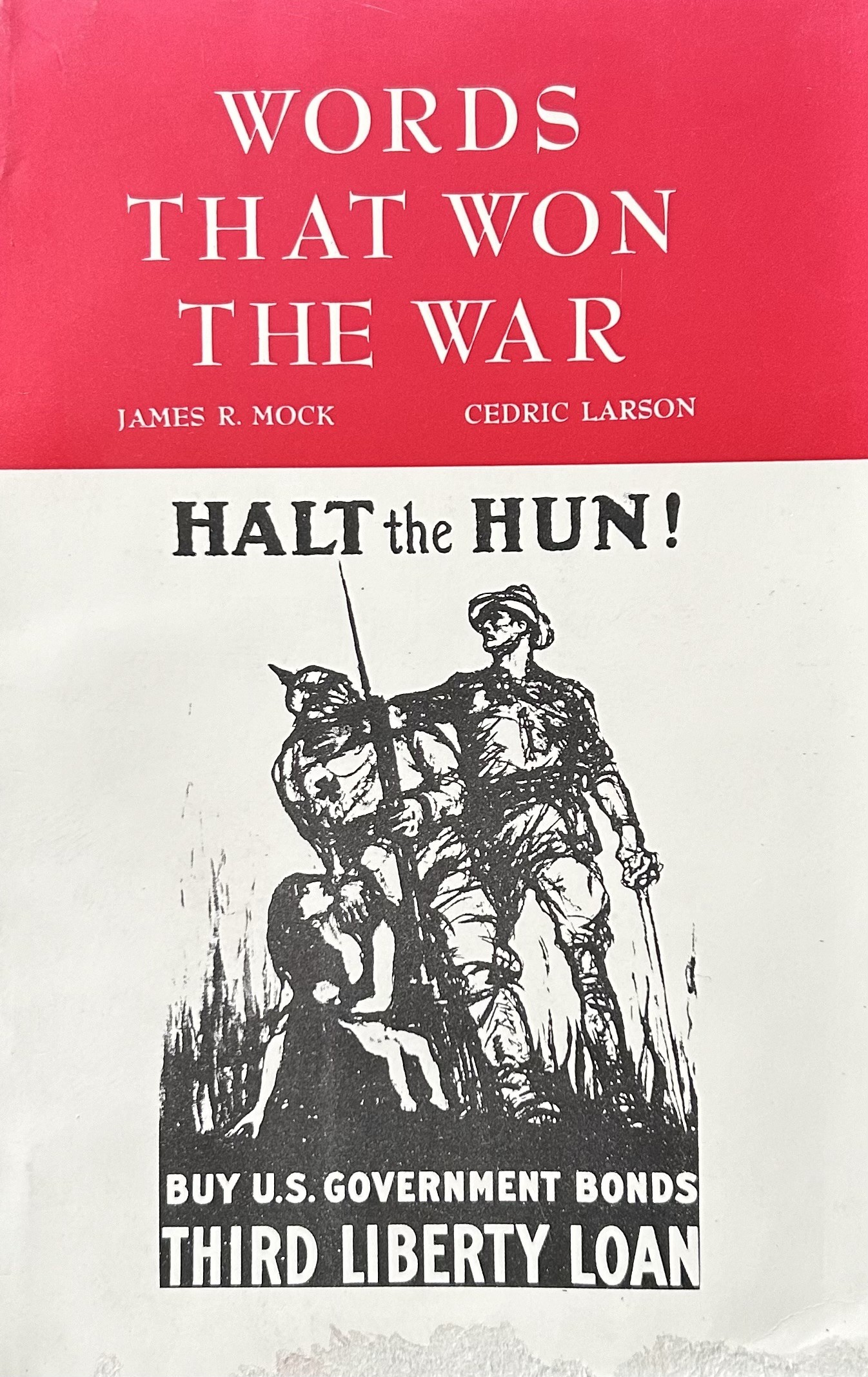
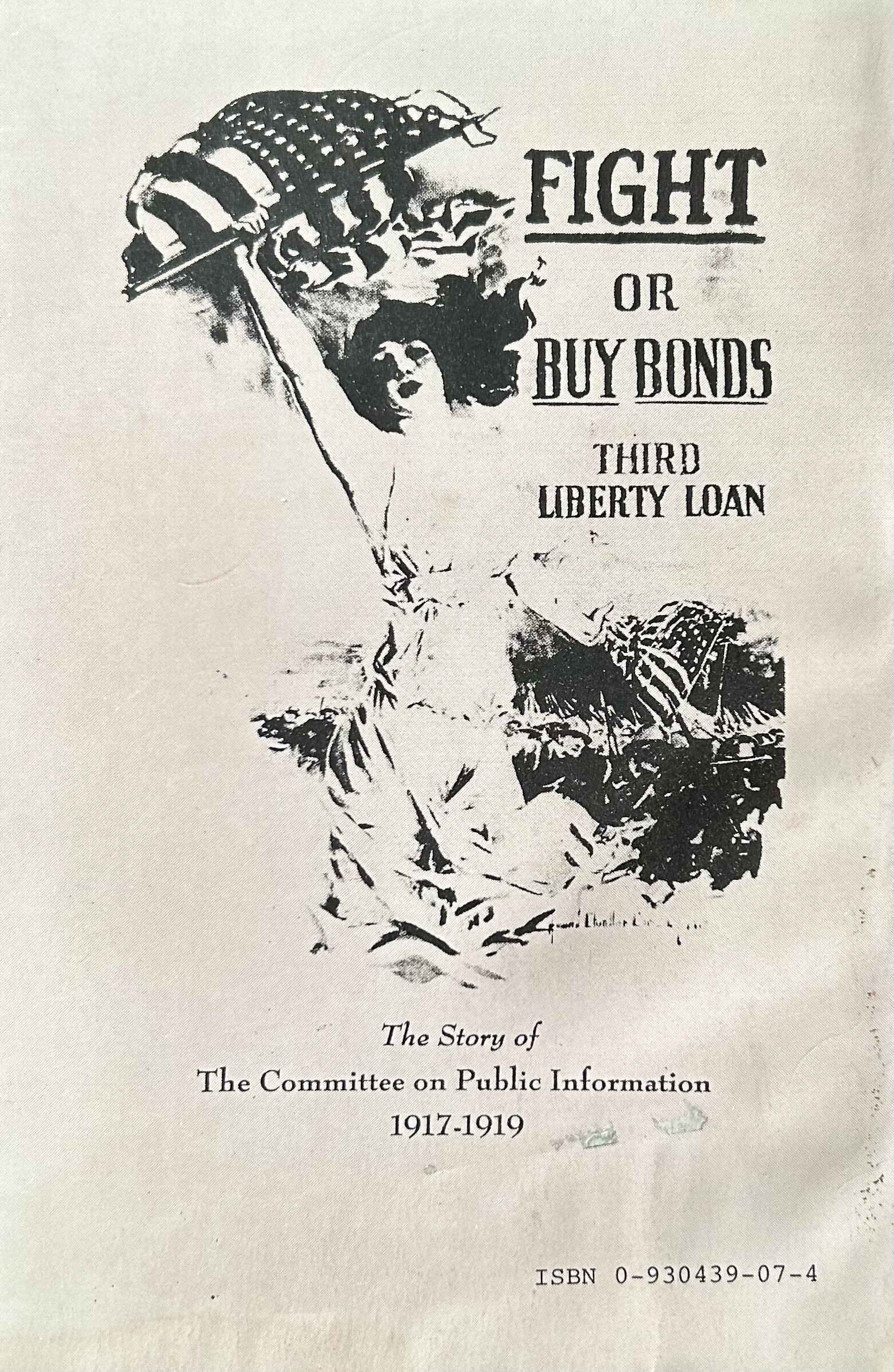
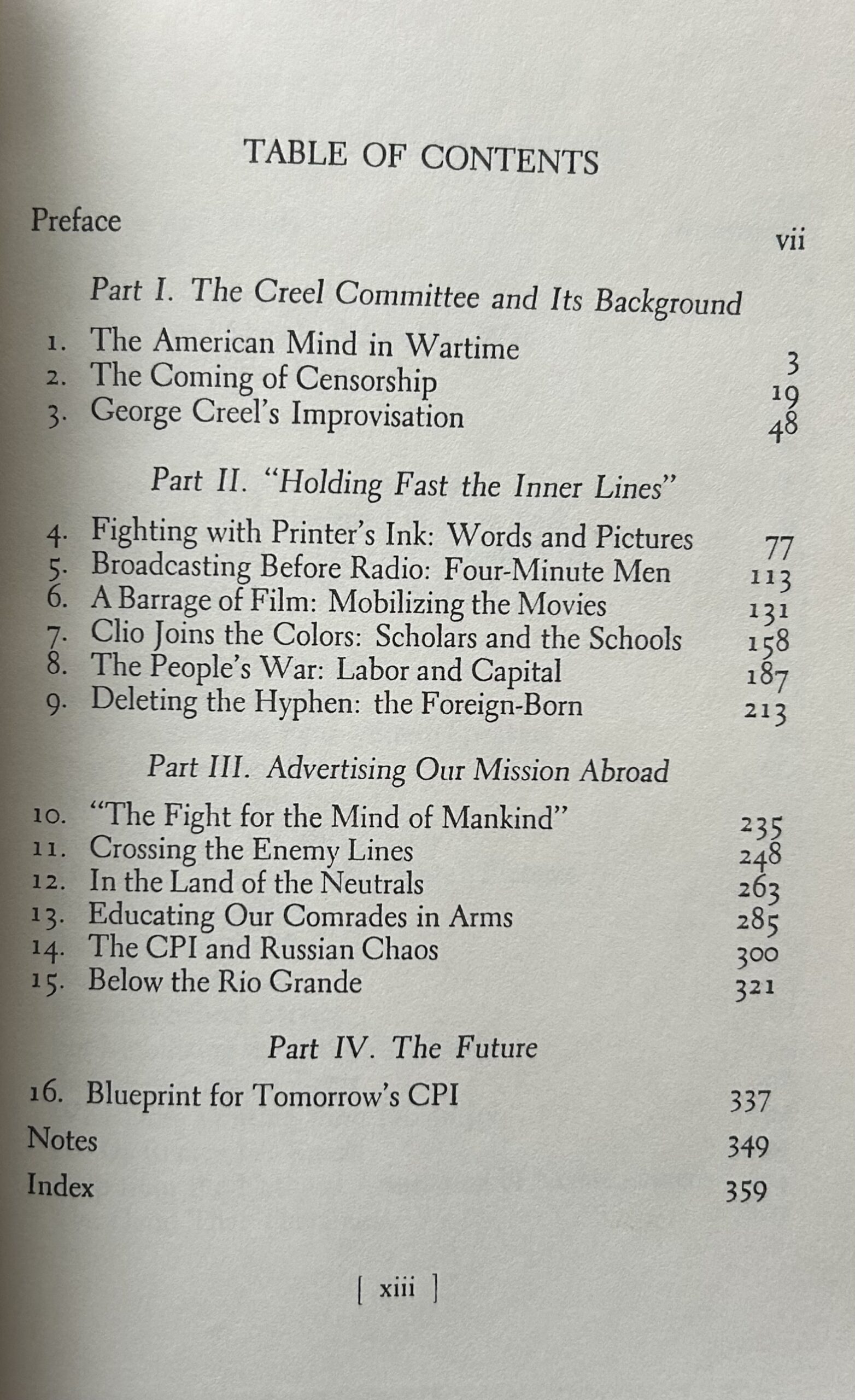
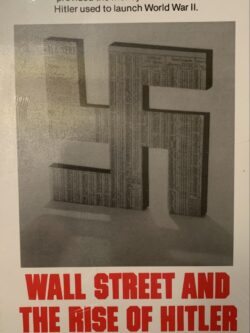
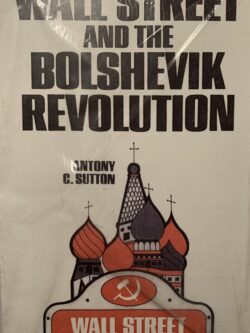
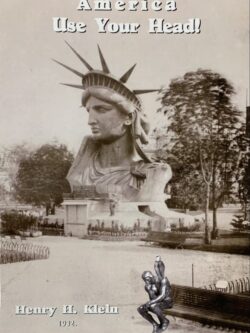
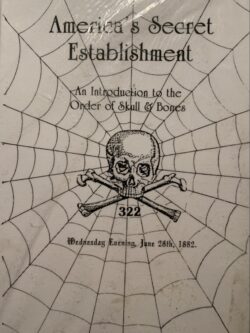
Reviews
There are no reviews yet.